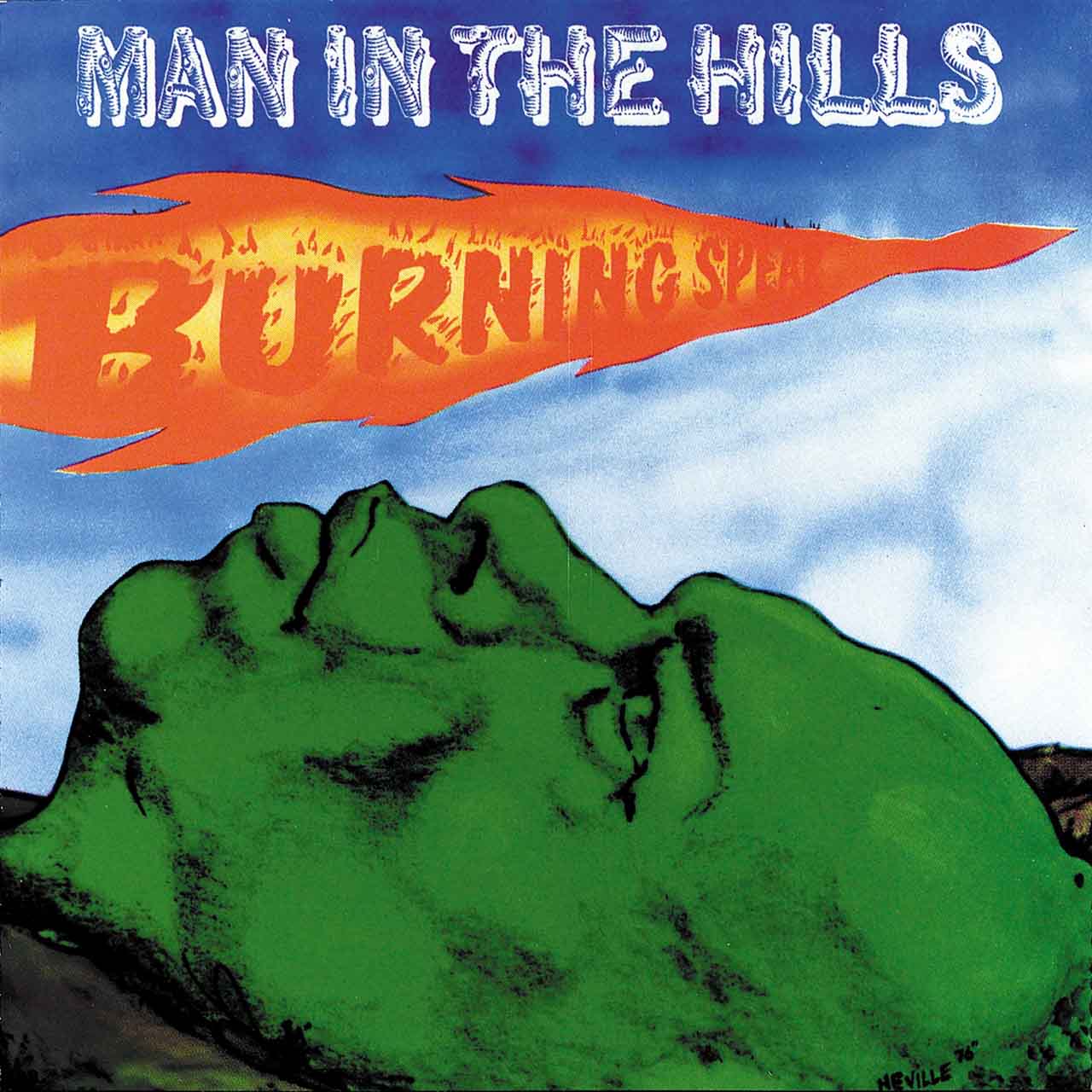A vocal trio consisting of charismatic frontman and songwriter Winston Rodney together with singers Rupert Willington and Delroy Hines, Burning Spear broke out of the Jamaican underground in 1976 and captured a global audience with their album Marcus Garvey, a politically charged homage to the iconic Jamaican father of Pan-Africanism and black self-determinism. The record’s international success – fueled by the trio’s signing a distribution deal with Chris Blackwell’s Island Records – came after a succession of releases for producer Coxsone Dodd’s Studio One label in the early 70s. In 1976, Island quickly released Garvey’s Ghost, a dub version of Marcus Garvey, and followed it later in the year with a freshly recorded studio album, Man In The Hills, which reunited the band with producer Jack Ruby, the roots reggae architect who had masterminded their Island debut.
Born Lawrence Lindo in St. Ann’s Bay, Ruby took his controversial stage name from the man who murdered Lee Harvey Oswald. Ruby had a catalytic effect on Burning Spear’s music, steering them in an uncompromising roots reggae direction that was defined by deep grooves and jabbing horn lines framing vividly etched portraits of ghetto life while exploring socio-political issues alongside themes of revolution and Rastafarianism. But those listeners who were expecting Man In The Hills to exude a similar angry intensity to Marcus Garvey would have been surprised how Burning Spear toned down the revolutionary fervor of their Island debut. The grooves were still tough but the lyrics were often softer, peaceful, and even nostalgic.
Listen to Burning Spear’s Man in the Hills now.
Recorded in Kingston, Jamaica, Man In The Hills used the same session musician supergroup that Ruby assembled for Marcus Garvey; dubbed The Black Disciples, they included The Wailers’ Aston “Family Man” Barrett and Tyrone “Organ D” Downie as well as bassist Robbie Shakespeare, who would go on to become half of the noted production duo, Sly & Robbie.
From the opening title track – a pastoral idyll dripping with nostalgia that described Rodney’s early family life in St. Anne’s Bay – it was clear that Burning Spear were on a different mission from their debut album. “People Get Ready,” for example, is an upbeat message song about togetherness. “We don’t want no fighting, no cursing, no dragging” sings Rodney on a deep groove garnished with trilling flutes. Other themes covered in Man In The Hills included peace and reconciliation (“No More War”), ancestral roots (“Black Soul”), a fisherman’s bond with the ocean (“Children”), and Black self-determination (“It’s Good”).
Man In The Hills does get righteous on “Door Peep,” with its biblical references. The tune was a remake of something Rodney recorded for Coxsone Dodd in 1969; it’s about Rastafarians standing up defiantly to police persecution. Rastafarian symbolism permeated “Lion,” the album’s first single, which alludes to Haile Selassie I, dubbed by his disciples the “Conquering Lion of Judah.”
Though not as strident as Marcus Garvey, Man In The Hills was an accomplished creation that not only cemented Burning Spear’s place in Jamaica’s pantheon of musical pioneers but whose meditative nature also added another dimension to the evolving roots reggae style. For Winston Rodney, who split from Rupert Willington and Delroy Hines shortly after the album’s release, it was the jumpoff point for him to carry the Burning Spear name alone – something he continues to this day.



